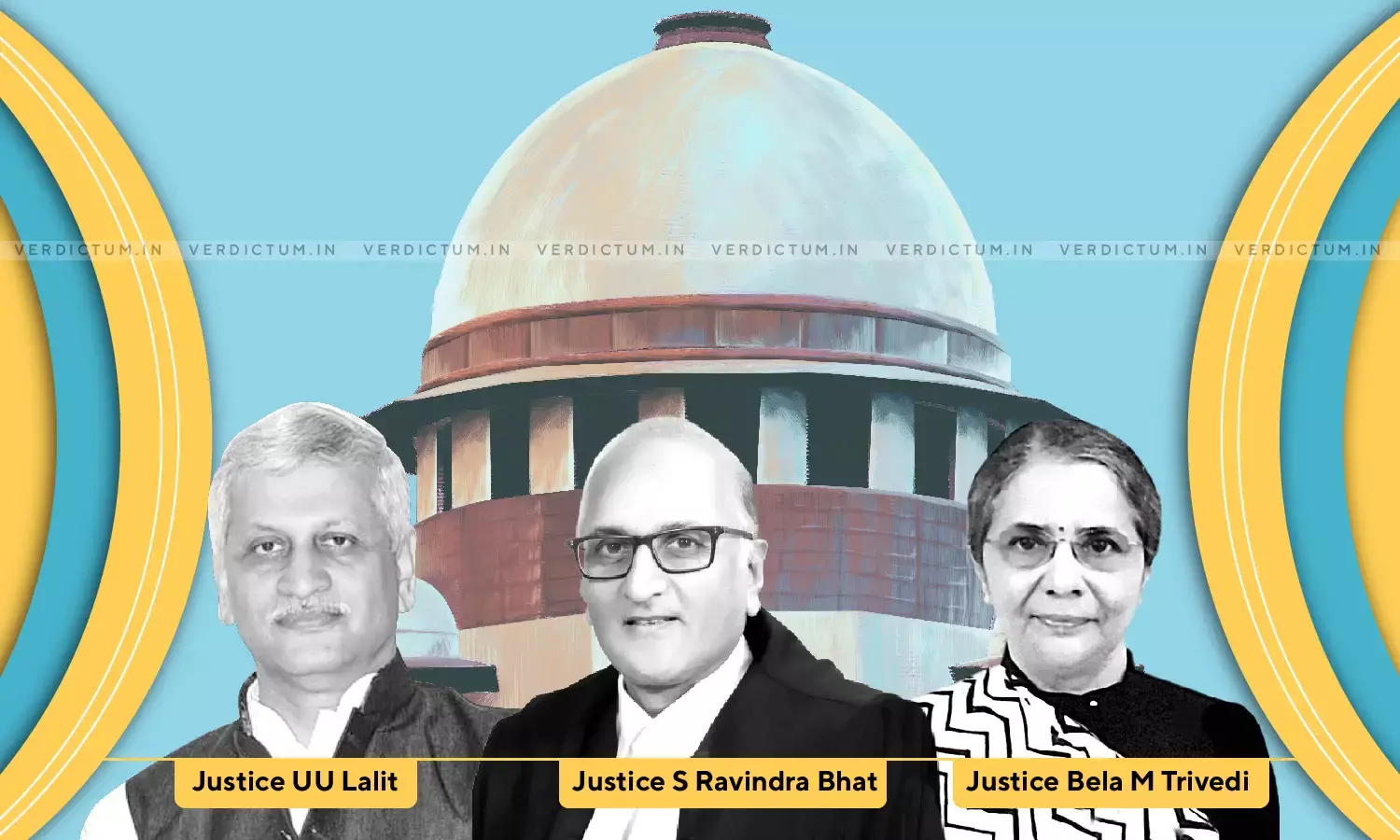Employees Cannot Claim Assured Career Progression Scheme As Vested Right - Supreme Court Clarifies

A three-judge bench of Justice U.U. Lalit, Justice S. Ravindra Bhat, and Justice Bela M. Trivedi allowed an appeal by DDA and set aside the order of Delhi High Court which had directed for the application of the MACP Scheme w.e.f. 1.1.2006.
The Court while setting aside the order of the Delhi High Court has held that the employees cannot claim ACP Scheme as a vested right.
The Bench has also opined that the employee cannot seek the second upgradation under the ACP Scheme claiming that it was more advantageous than the MACP Scheme.
The issue raised before the Supreme Court was whether the reasoning adopted by the Delhi High Court to hold and direct that the Modified Assured Career Progression Scheme ("MACP") had to be applied from 01-01-2006, was correct.
In this case, the Government of India introduced Assured Career Progression Scheme (ACP) in 1999 to remove stagnation. The scheme envisages placement in higher pay scale or financial upgradation to government servants on a personal basis. It neither amounts to promotion nor creates a new post. The first upgradation is to be allowed after 12 years of service and the second upgradation is to be allowed after 12 years of the first upgradation and fulfilling prescribed conditions. Two financial upgrades can be availed by the government servant in his tenure against regular promotions.
The Sixth Central Pay Commission submitted certain recommendations about the salary structure and allowances, conditions of service, and retirement benefits of the Central Government employees and other public bodies, etc. It was accepted later on and made applicable from 01.01.2006.
In 2019, in supersession to the ACP scheme, the Modified ACP scheme (MACP) was introduced w.e.f. 01.09.2008. The number of benefits was raised to 3 and the period was reduced to 10 yrs. The respondent employees had been appointed as regular Work Charged Malis, by the DDA, with effect from various dates, beginning from 03.01.1985. They were granted first upgradation w.e.f. 03.01.1997 and they became eligible for second upgradation w.e.f. 03.01.2009, the benefit was not given to them but subsequently it was allowed. Their grievance was not about the benefit but the effective date of their eligibility. They raised the question that the DDA introduced the MACP scheme with effect from (01/09/2008) by an order dated 06.10.2009 and their eligibility for second claim had arisen earlier under the ACP scheme.
The Central Administrative Tribunal (CAT) after hearing the claim of both the parties allowed the applications and directed the DDA to consider their cases for granting financial upgradations under the ACP scheme till 19.05.2009.
Aggrieved, by the CAT's order, DDA proceeded to Delhi High Court. It argued that from 01.09.2008, MACP scheme had become operational and the employees were no longer entitled to benefits under ACP scheme. The High Court had placed reliance on the decision of Union of India v. Balbir Singh, where it was held that Armed Personnel should be given benefits of MACP from the date of recommendation of Central Pay Commission.
Before the Supreme Court, it was argued that Delhi HC judgment applied only to Armed Forces Personnel and not to civil establishments like DDA. Further, It was contended that the High Court failed to recognize that the Respondents became eligible for the second up-gradation only after the date of issuance of the MACP and consequently were not entitled to an up-gradation under the old ACP
The Bench upheld the recording of the Armed Force Tribunal that ACP is not only an allowance but a part of pay and also affects the pay as well as a pension.
The Court held -
"Having regard to this clearly enunciated principle, which, in this court's opinion, stems from a correct reading of the scheme, the reasoning of the High Court, that the MACP scheme is operative not from 01-09-2008, but from 01-01-2006, is untenable."
The Bench also noted that High Court took no notice of the fact that DDA is an autonomous statutory body and any revision of the pay structure of Central Government personnel do not apply automatically.
"In the present context, none of the employees actually earned a second financial up-gradation. They undoubtedly became eligible for consideration. However, the eligibility ipso facto could not, having regard to the terms of the ACP scheme translate into an entitlement. The eligibility was, to put it differently, an expectation. To be entitled to the benefits, the public employer (here DDA) had to necessarily review and consider the employees' records, to examine whether they fulfilled the eligibility conditions and, based on such review individual orders had to be made by DDA. In other words, second ACP up-gradation was not automatic but dependant on external factors," the Court opined.
Relying on Ajoy Kumar Banerjee v Union of India, the Court held that some employees could have benefitted more under the ACP benefits, if the MACP scheme had not been introduced from an earlier date, which is no ground to hold so and compel an executive agency to grant the claimed benefits.
Accordingly, the Court dismissed the appeals preferred by the employees claiming that they ought to be given ACP benefits from the date as claimed for the reasons assigned by the Court.
Click here to read/download the Judgment

